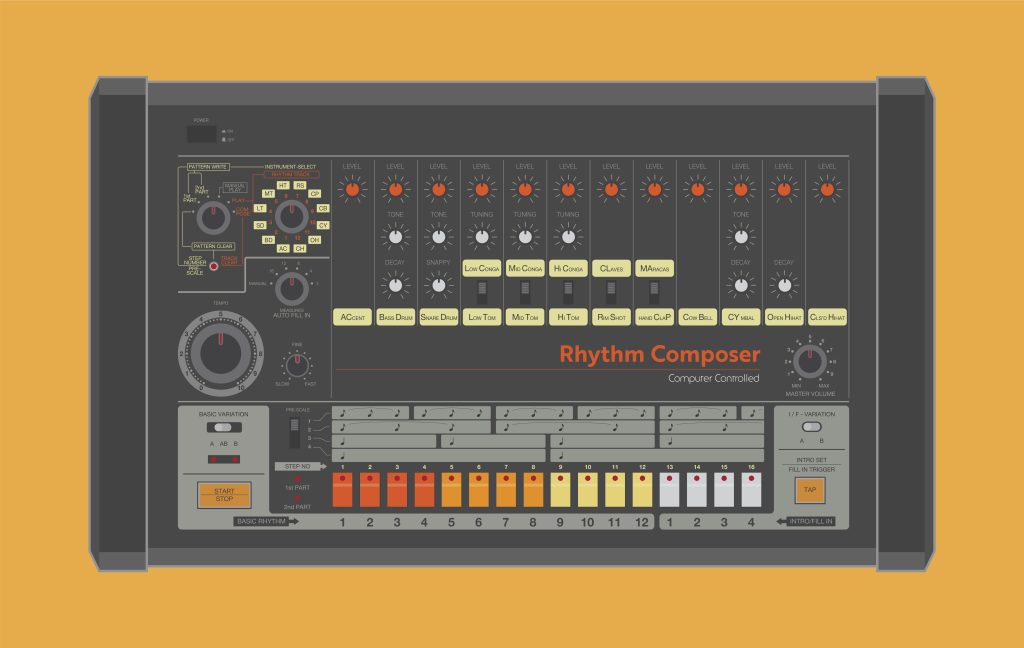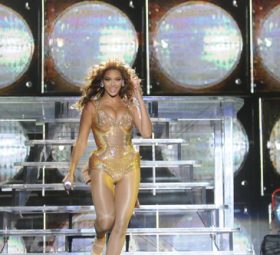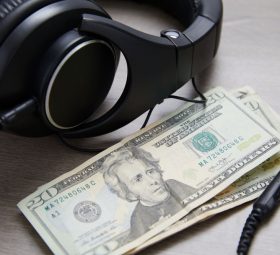Hip-Hop got its grand start in the streets of the Bronx in the early 1970s, influenced by already existing musical genres. The Pioneers of Hip-Hop founded the base of what later became known as one of, if not the most influential musical genre in the world.
Three men were known as “The Holy Trinity”, the originators. They started their careers in the streets of the Bronx in underground parties and block celebrations as an escape from a time when New York was riddled with gang wars, violence, and racial division. Without them, the Hip-Hop genre wouldn’t be what it is today.
So, who were the pioneers of Hip-Hop music?
DJ KOOL HERC
Clive Campbell was born in Kingston, Jamaica, in 1955. He later immigrated to the United States with his Jamaican parents. He never knew how his life would change in that 1520 Sedgwick Ave. apartment he shared with his parents and his sister Nettie.
Clive Campbell got his nickname ‘Kool Herc’ running with a graffiti crew called the Ex-Vandals and got introduced to New York Street Culture.
Despite having grown up listening to the music of his native Jamaica, he had also been introduced to American influences like James Brown. Later, Kool Herc would draw inspiration from Jamaican music to create the catalyst for the beginning of the hip-hop scene in the Bronx.
In 1973, at 18 years old, he and his sister Nettie threw a basement back-to-school party at their modest Bronx apartment as leeway for extra cash for the beginning of her school year. 1520 Sedgwick Avenue became the go-to-party location. Herc used the turntable for the first time, using two copies of the same record and back-cuing one to the beginning of the break when the other reached the end. It created a loop and made the song breaks last longer.

His audience’s positive response encouraged Herc to study his audience and songs with breaks, drawing influences from conga music, black soul, and Latin funk. Herc and his sister began throwing house parties almost every month, and from small house parties and block parties, Herc moved on to play at clubs and high schools. He also worked with Coke La Rock, considered the first Hip-Hop MC with his rhythmic, poetic lyrics paired with Herc’s upbeat music.
Herc, however, wasn’t only influential in the music scene; he was the first to call dancers “break boys” and “break girls.” Those dancers later became what we call breakdancers today.
In 1995, Herc was inducted into the Rock and Roll Hall of Fame. Time Magazine credited Herc as the founder of Hip-Hop in their May 2002 issue, where he was featured alongside other music pioneers like Elvis Presley and Louis Armstrong.
DJ Kool Herc continues to be active in the Hip-Hop world today.
AFRIKA BAMBAATA
Born in the Bronx in 1957, Kevin Donovan — the son of Jamaican and Barbadian immigrants — is known as the Godfather of Hip-Hop. He’s considered one of the originators of DJing. He was a former gang member who turned to music in a time of rising crime and violence in his city. Donovan changed his name to Afrika Bambaata Aasim, adopting the name of a former Zulu chief in South Africa who fought against unfair economic policies.
One of Bambaata’s most notable contributions is his creation of the Universal Zulu Nation, which promoted the values Hip-Hop aimed to teach its listeners: peace, unity, love, and community.
As a DJ in the 70s, Bambaata organized block parties and breakdancing competitions, where he introduced his style of DJing. He was the first to introduce the TR-808 machine in the Hip-Hop scene.

It wasn’t until 1982, when his single “Planet Rock” made it to the ears of music producers, that Afrika Bambaata became a renowned name in the music world. He blended techno-pop with hip-hop to create original and innovative music, heavily influenced by DJ Kool Herc and German futuristic electronic music.
Then he continued to work with notable names like John Lydon, UB40, and Boy George. Later, he was introduced to the Rock and Roll Hall of Fame in 2007.
GRANDMASTER FLASH
Joseph Saddler, better known as Grandmaster Flash, is a Barbadian-American DJ and rapper born in the Bronx in 1958. He pioneered techniques like cutting, scratching, and mixing. Credited for introducing Quick Mix Theory, Flash got his name with the help of a notorious local gangster who nicknamed him Flash and said he “handled those turntables like a Grandmaster.”
This critical event in his life led him to adopt the stage name of Grandmaster Flash.

Flash was the first DJ to manipulate vinyl records in a backward, forwards and counterclockwise motion. He marked his records with fluorescent pens and crayons that served as his guide when he found himself behind a turntable. However, his big break came when he founded the group Grandmaster Flash and the Furious Five. Their multi-platinum single “The Message” quickly became a staple in the Hip-Hop community. Grandmaster Flash and the Furious Five were the first hip-hop group to be inducted into the Rock and Roll Hall of Fame in 2007.
Flash is still active in the Hip-Hop industry.
Without the Holy Trinity of Hip-Hop, the music genre would never be what it is today. They are accredited as the creators and innovators of the first sounds of Hip-Hop and still influence artists in the Hip-Hop scene to this day. The Pioneers of Hip-Hop got their start somewhere, even in the most unexpected places, and succeeded in global recognition.







